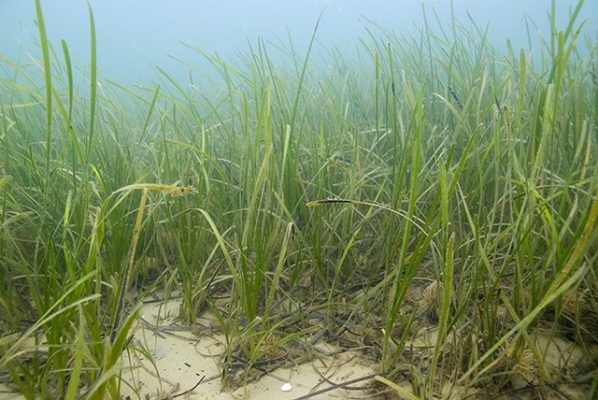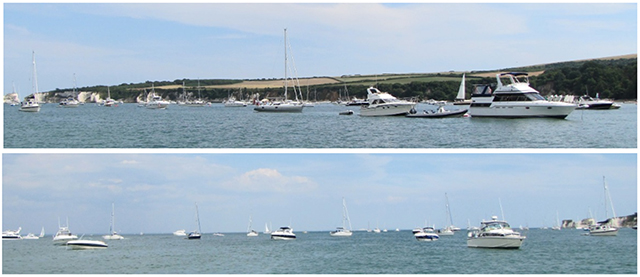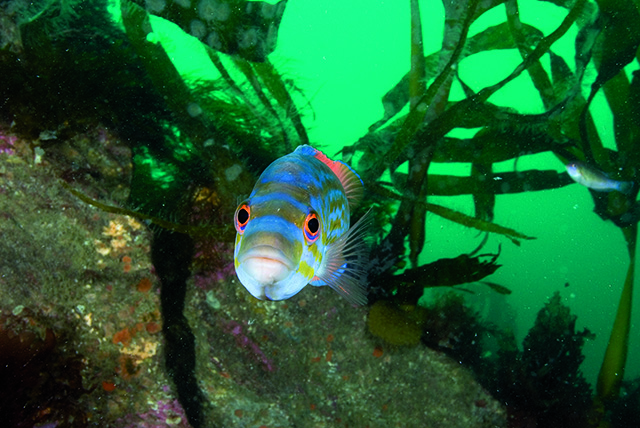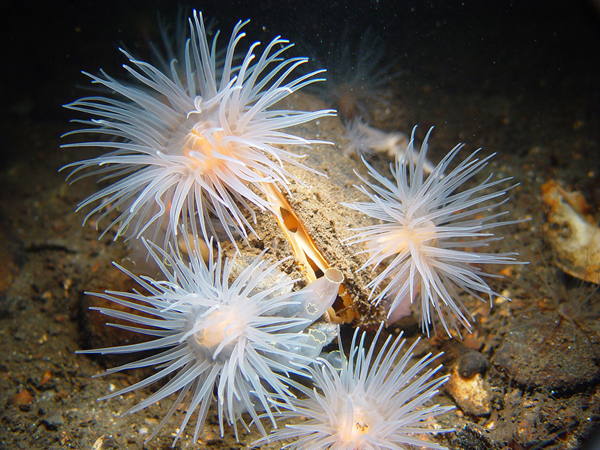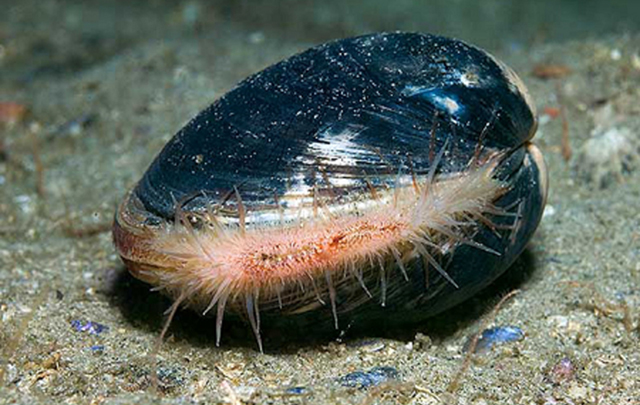Boaters have been finding out about sites being considered to go forward as Marine Conservation Zones in Dorset and the Solent.
The Department for Environment, Food and Rural Affairs (Defra) has embarked on the third and final tranche of the Marine Conservation Zone (MCZ) designation programme.
The aim is to complete the Blue Belt, an ecologically coherent network of well-managed marine protected areas around England. To date 50 sites have been designated as MCZs within English waters.
These add to the existing marine protected areas, such as Special Areas of Conservation (SAC). The final designations are intended to ‘complete the network.’
Following ministerial decisions Defra is expected to announce the final list of Tranche 3 sites to be formally considered and to launch a formal consultation period in late summer/autumn 2017.
For the past few months, under request from Defra, Natural England and Joint Nature Conservancy Committee (JNCC) have been working to ensure that these sites meet certain criteria and evidence standards. Taking into account all the information gathered during the consultation, the minister will decide which sites are to be designated. Sites are currently planned to be designated in 2018.
A series of community drop-in sessions have been taking place, hosted by Natural England, to enable recreational boaters to ask questions, raise concerns and receive information about the sites under consideration.

The Yards, Studland Bay, Dorset. Credit: Amy Dale
In Dorset and around the Isle of Wight, these include three Isle of Wight (IoW) sites, (Yarmouth to Cowes, Norris to Ryde and Bembridge) and a further five along the Dorset coast, (Albert Field, Southborne Rough, Studland Bay, South of Portland and Purbeck Coast). Additional features for existing MCZs are also being considered in another three sites in Dorset.
An estimated 40 people attended the drop-in session at the Thistle Hotel, Poole. Other sessions in early March saw 40 people attend the Riverside Community Centre, Newport, Isle of Wight, while 10 to 15 visited a session at the Holiday Inn, Southampton.
Further community drop-in events are to be held at:
- The Chesil Beach Visitor Centre, Portland, 21 March, 2pm-7pm
- Riverside Community Centre, Newport, IoW, 22 March, 2pm-7pm
- Studland Village Hall, Studland, 29 March, 1.30pm-6.30pm.
Natural England representative Gavin Black told PBO that it was not yet possible to say what management measures may be required where ‘interaction’ occurred between sensitive areas and leisure use.
Key areas of interest to boaters include Bembridge, Norris to Ryde (which includes Osborne Bay) and Studland Bay where popular anchorages overlap in various places with sensitive marine habitats, such as seagrass beds.
Referencing Studland, Gavin said: ‘Hopefully we can come to an amicable solution whereby seagrass can flourish and sailors can continue to use the area. In Studland there is quite a big crossover and our advice to Defra will be that it has been impacting.
‘We’re working with other organisations to see what options are available. Eco moorings is one of the solutions we hope can be feasible. We’re working with the Royal Yachting Association (RYA) and Marine Managament Organisation (MMO) to assess all that. Hopefully a balance can be struck.’
Amec Foster Wheelhouse has been contracted to collate further information to understand feasibility of eco moorings as a management option in marine protected areas.
Gavin added: ‘The diversity of England’s marine environment is not doing too well. MCZs are one of the tools to improve the situation.’
MMO representative Nick Greenwood spoke to PBO about MCZ management: ‘“One of the main things people are concerned about is the effect an MCZ designation is going to have on activities in the area.
It’s important that people know that designation doesn’t automatically mean a blanket ban on all activities.
‘We know how important it is to work with and consult local groups and others when looking at possible management measures. They help us to understand exactly how a site is being used and to recommend the right balance of management.
‘Management measures are only introduced if an activity will damage or put at risk the features that the site has been designated for. This means activities can continue where possible whilst ensuring that the protected habitats or wildlife are not damaged. ‘
- Natural England provided advice to Defra at the end of February. Defra are to present their findings, including data and socio-economic impact, to the Marine Environment Minister, who will in turn make a decision about what sites should go forward for consultation in late summer/early autumn (although Brexit may have an impact). In 2018 the Minister will make a decision on the Tranche 3 designations. Within two years from this designation, if management is required, it will come into play.
- The first tranche of 27 MCZs, announced in November 2013, included areas such as Pagham Harbour, Blackwater, Crouch, Roach and Colne Estuaries, the Tamar Estuary and the Folkestone Pomerania. In January 2016, 23 more sites were designated as MCZs, covering areas across the country from as far north as Farnes East off the coast of Northumberland down to Land’s End in the South West, and will protect 45 different types of habitat, geological features and fascinating species – including stalked jellyfish and spiny lobsters. An interactive map showing all the current designated areas can be seen at www.jncc.defra.gov.uk/page-5201
South Coast anchorage Studland Bay among Tranche 3 MCZ contenders
Your chance to find out more about six new Marine Conservation Zones proposed for the South and South West of…
Report calls for 48 new Marine Conservation Zones
The 48 areas proposed by The Wildlife Trusts are said to be the final gap-fillers in the ‘blue belt’ of…
RYA blasts report that ‘fails to recognise importance of robust evidence in MCZ process’
Environmental Audit Committee's report's recommendations could impact recreational boaters, says RYA
Four new Marine Conservation Zones designated in Northern Ireland
New inshore MCZs to protect Belfast Lough clams; rare black guillemots on Rathlin Island; seagrass meadows off Waterfoot; soft coral…
New Marine Conservation Zones proposed for English Waters
The Government’s scientific advisors have provided proposals on where a final set of 50 Marine Conservation Zones are needed around…
RYA urges boaters to observe Studland No Anchor zone
Voluntary Zone has been in place since 2009 pending study
New Milford Haven visitor buoys to protect seagrass
The new mooring buoys 'have been positioned in such a way so as to discourage other boat users from anchoring…




